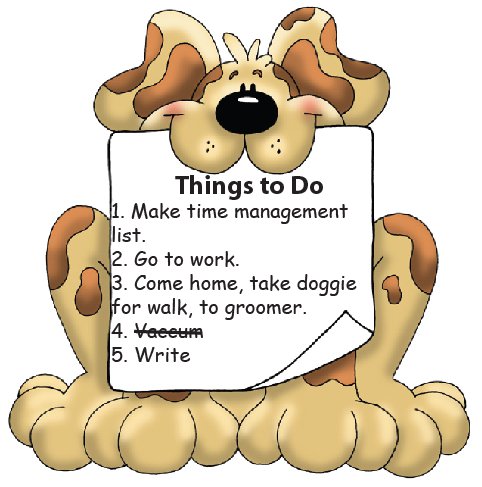Writing Fiction: How to Make Writing a Habit

Writing requires discipline
As a writer, I know how hard it is not only to cultivate the discipline it takes to put pen to paper (or finger to word processor!), but also to find the time you need every day to write. If you've decided, finally, to write the book you've always wanted to write, you're probably finding that it can be hard adding writing to all the thing you do while managing your day. It might be next to impossible, as far as you can see, to give your all to a new writing project that only you may think is important, and that may actually be important only to you. But one thing is for sure: If you are going to write a book, no matter what kind of book it is, you will need to develop a writing habit. You will need to cultivate the discipline that is required to study writing, to understand/comprehend all it takes to write well, and to commit to writing every day.
There are probably many things and people you have to juggle, especially if you have a job and/or family obligations competing for your time. And it might be hard for you to find the time you need, especially in the beginning, to develop a writing habit. It's not easy, and believe me, I know it's not easy. But I’ve discovered that one of the most important things you can do when embarking upon a new writing project is to make sure you spend at least some time, every day, writing. You don't have to have a whole lot of time, at first, when you're trying to develop a writing habit. You may not even have big chunks of time you can devote to your writing project in the beginning. You may have more time to write some days than you will have on other days, and what I am saying to you is that you must work with the time you have. In the beginning stages of developing a writing habit, it is much more important to feed your habit every day, no matter how much time you have to feed it, than it is to have a set amount of time every day to devote to writing. Don't feel defeated that you can't devote one, two, or three hours a day to writing. In the beginning, just be sure to devote some time to it, every day.

Writing requires time
Many experts will say that you should try to spend an hour or two each day writing. They will often recommend a ritualistic routine to provide you with the time and the regimen you need to write a book. And while I agree with this advice, in theory, in the practical work-a-day world, I know it can be next to impossible to keep such “dreamlike” reality going on in your "real world" for more than a few days. That’s why I recommend that you write when you can, for as much time as you can, every day. If you have only thirty minutes on Monday to devote to writing, then spend thirty minutes writing. If you have an hour on Tuesday while your spouse and kids are out of the house, then on that day, spend an hour completely absorbed in writing. My point is, it’s better to spend thirty minutes or an hour of quality time writing something you’ve been itching to write about all day, than to become frustrated because you can’t regularly find two or three hours of time for writing. If you’re like me, the stress and the frustration of trying to find two or three hours every day will only make you come to dread the very idea of writing, and if you allow yourself to get caught up in this frustration, you’ll soon abandon your writing dream.

Writing requires time management
I believe in a more “home grown” approach, if you will, to writing your book. What I mean is, only you know how your home operates. Only you know your schedule, your responsibilities and how you prefer to handle them, your family or work obligations, and so on, and so on. So that means only you are the expert at coming up with how and when you might be able to insert writing your book into your day. I try my best to incorporate time management best practices, to make time for my many writing projects. By doing this, I am usually able to carve out quite a bit of quiet time within the chaos that often is my day. I enjoy working this way, so now I’m going to share with you a few of my time management favorites. I hope you’ll find these time management tips helpful:
1. Prioritize where possible. On the weekend, take a few moments to think about the week ahead. Make a list, first, of the things you must do. Next, write down the things you want to do, and finally, the things you’ll do if you have the time. Once the week begins, spend the bulk of your time and energy on those things that are “musts,” and get as many of the other things done as possible, if they are really important to you.
2. Chop, chop. Whenever possible, chop big tasks into a series of smaller tasks, and then work at the smaller tasks in intervals, until the big task is nothing but a memory.
3. Set time limits. Give yourself a set amount of time—for example, 10 or 15 minutes, to perform tasks you hate. For example, I hate vacuuming. I set my oven timer, and then I only vacuum for 10 minutes at a time. If more vacuuming is needed, after spending time doing something else … anything else, I will devote another 10 minutes to vacuuming. Get it? Give yourself time limits and stick to them, for those must-do tasks that you absolutely hate.
4. Never waste a waiting moment. Any time you find yourself somewhere waiting on something, if possible, use that time to write or to plan what you want to write. I keep a notepad with me at all times so that I can jot down ideas that might come to mind while I’m waiting for something else.
5. Phone Fasting. The telephone can be the biggest time waster of all, so learn to see your phone as a tool to be used only for those “must have” conversations. Don’t allow other people to determine what you will do with your time. If it’s important or necessary to talk to someone by phone or email, then by all means, do. But if the call is one that is really more “nothing” than “something,” then either let the rings go to Voice Mail, or learn how to kindly and gently shut the conversation down quickly.

Writing well requires the love of writing
The thing I find most fascinating about beginning the process of writing something is that the more you work on it, the easier it becomes and the more you enjoy it. When that happens, you’ll search for and you'll find more ways you can arrange/rearrange your day to make the time you need for your writing project. And it doesn’t really matter what you’re writing. It might be a work of fiction, or it could be the first chapter of your autobiography. As you discover ways to carve out time for your writing, the easier it will become to find time you need to write, and the easier it will become to get what you want to say out of your mind and onto your computer screen or paper.
If you love to write, then this process will work for you, no matter what type of writing project you want to complete. If you’re more inclined to write poetry or a mystery novel than you are to compile your or your family’s history, then this is still the Hub for you. Why? Because these tips for managing your day to include writing will work for anyone who has a true love of writing. The operative word you will need to remember, however, is w-r-i-t-e!
Be sure to stay tuned to my Hub pages as I will spend more time, in the future, talking and offering more tips about writing and about self-publishing what you write, no matter what it is you want to write and publish. My Hubs will always encourage and inspire writers of all skill levels to find time to think and to plan with regard to writing. I will always encourage "would-be" writers to find time, every day, for writing--whether you have only several minutes or several hours you can devote to this craft you say you want to love. That way, not only will you be making time for writing every day, you will also be working on becoming a more creative, stronger writer. And, the stronger you become as a writer, the more likely it becomes you will stick with your writing project until it is completed.
So. Be on the lookout for other Hubs I've written on topics related to the craft, and to the love, of writing.
© 2012 Sallie B Middlebrook PhD








